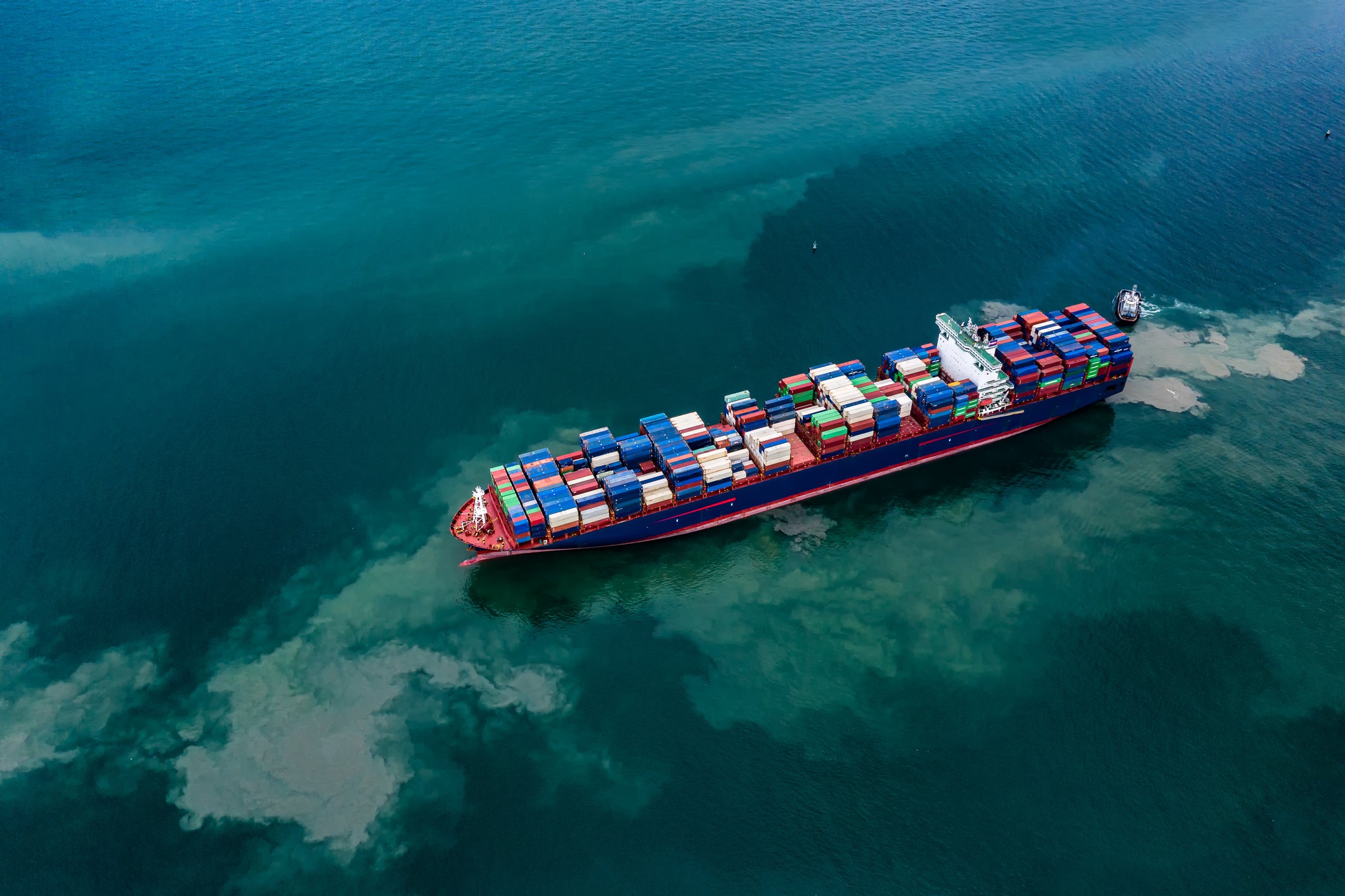
As per Review of Maritime Transport 2022, the flagship report published by United Nations Conference on Trade and Development (UNCTAD), the maritime sector will require greater investment in infrastructure and sustainability to weather future supply chain crises, including the reduction of carbon footprint in maritime transportation.
The report highlights that ports, shipping fleets and hinterland connections need to be better prepared for future global crises, climate change and the transition to low-carbon energy.

Discover B2B Marketing That Performs
Combine business intelligence and editorial excellence to reach engaged professionals across 36 leading media platforms.
The supply chain crisis of the last two years has shown that a mismatch between demand and supply of maritime logistics capacity leads to surges in freight rates, congestion, and critical interruptions to global value chains.
Ships carry over 80% of the goods traded globally, with the percentage even higher for most developing countries, hence the urgent need to boost resilience to shocks that disrupt supply chains, fuel inflation and affect the poorest the most.
“We need to learn from the current supply chain crisis and prepare better for future challenges and transitions. This includes enhancing intermodal infrastructure, fleet renewal and improving port performance and trade facilitation,” UNCTAD Secretary-General Rebeca Grynspan said. “And we must not delay the decarbonization of shipping,” she added.
Investment is needed in maritime transport systems to strengthen global supply chains
Based on the report, logistics supply constraints combined with a surge in demand for consumer goods and e-commerce pushed container spot freight rates to five times their pre-pandemic levels in 2021, reaching a historical peak in early 2022 and sharply increasing consumer prices.

US Tariffs are shifting - will you react or anticipate?
Don’t let policy changes catch you off guard. Stay proactive with real-time data and expert analysis.
By GlobalData“If there is one thing we have learned from the crisis of the last two years it is that ports and shipping greatly matter for a well-functioning global economy,” said Shamika N Sirimanne, director of UNCTAD’s technology and logistics division. “Higher freight rates have led to surging consumer prices, especially for the most vulnerable. Interrupted supply chains led to lay-offs and food insecurity.”
UNCTAD called on countries to carefully assess potential changes in shipping demand, develop and upgrade port infrastructure and hinterland connections while involving the private sector. Adding further that the countries should also bolster port connectivity, expand storage and warehousing space and capabilities, minimise labour and equipment shortages.
However, UNCTAD added, many supply chain disruptions can also be eased through trade facilitation, notably through digitalisation, which cuts waiting and clearance times in ports and speeds up documentary processes through e-documents and electronic payments.
More investment to cut carbon footprint of maritime transport
The report shows that between 2020 and 2021 total carbon emissions from the world maritime fleet increased by 4.7%. The new investments being called for by UNCTAD will also include switching to alternative, low or zero-carbon fuels, optimizing operations, using on-shore electricity when in ports and equipping vessels with energy-efficient technology.
Moreover, the report also calls for a predictable global regulatory framework for investing in decarbonization and increased support for developing countries in the energy transition. It further underlines the urgent need to adapt ports to the impacts of climate change, especially in the most vulnerable nations.
Measures to protect competition needed in the face of market consolidation
The container shipping sector has been transformed by horizontal consolidation through mergers and acquisitions. Shipping carriers have also pursued vertical integration by investing in terminal operations and other logistics services, the report said.
Market consolidation results in reduced competition constrained supply, and can lead to market power abuse and higher rates and prices for consumers. The report urges stronger international cooperation on cross-border, anticompetitive practices in maritime transport, based on the UN Set of Competition Rules and Principles.
The complete report can be accessed here.





